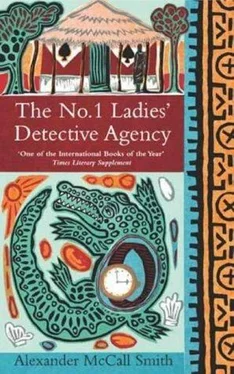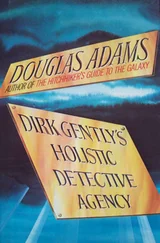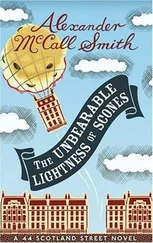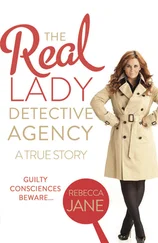They taught us Funagalo, which is the language used for giving orders underground. It is a strange language. The Zulus laugh when they hear it, because there are so many Zulu words in it but it is not Zulu. It is a language which is good for telling people what to do. There are many words for push, take, shove, carry, load, and no words for love, or happiness, or the sounds which birds make in the morning.
Then we went down to the shafts and were shown what to do. They put us in cages, beneath great wheels, and these cages shot down as fast as hawks falling upon their prey. They had trains down there-small trains-and they put us on these and took us to the end of long, dark tunnels, which were filled with green rock and dust. My job was to load rock after it had been blasted, and I did this for seven hours a day. I grew strong, but all the time there was dust, dust, dust.
Some of the mines were more dangerous than others, and we all knew which these were. In a safe mine you hardly ever see the stretchers underground. In a dangerous one, though, the stretchers are often out, and you see men being carried up in the cages, crying with pain, or, worse still, silent under the heavy red blankets. We all knew that the only way to survive was to get into a crew where the men had what everybody called rock sense. This was something which every good miner had. He had to be able to see what the rock was doing-what it was feeling-and to know when new supports were needed. If one or two men in a crew did not know this, then it did not matter how good the others were. The rock would come down and it fell on good miners and bad.
There was another thing which affected your chances ofsurvival, and this was the sort of white miner you had. The white miners were put in charge of the teams, but many of them had very little to do. If a team was good, then the boss boy knew exactly what to do and how to do it. The white miner would pretend to give the orders, but he knew that it would be the boss boy who really got the work done. But a stupid white miner-and there were plenty of those-would drive his team too hard. He would shout and hit the men if he thought they were not working quickly enough and this could be very dangerous. Yet when the rock came down, the white miner would never be there; he would be back down the tunnel with the other white miners, waiting for us to report that the work had been finished.
It was not unusual for a white miner to beat his men if he got into a temper. They were not meant to, but the shift bosses always turned a blind eye and let them get on with it. Yet we were never allowed to hit back, no matter how undeserved the blows. If you hit a white miner, you were finished. The mine police would be waiting for you at the top of the shaft and you could spend a year or two in prison.
They kept us apart, because that is how they worked, these white men. The Swazis were all in one gang, and the Zulus in another, and the Malawians in another. And so on. Everybody was with his people, and had to obey the boss boy. If you didn't, and the boss boy said that a man was making trouble, they would send him home or arrange for the police to beat him until he started to be reasonable again.
We were all afraid of the Zulus, although I had that friend who was a kind Zulu. The Zulus thought they were better than any of us and sometimes they called us women. If there was a fight, it was almost always the Zulus or the Basotho, but neverthe Batswana. We did not like fighting. Once a drunk Motswana wandered into a Zulu hostel by mistake on a Saturday night. They beat him with sjamboks and left him lying on the road to be run over. Fortunately a police van saw him and rescued him, or he would have been killed. All for wandering into the wrong hostel.
I worked for years in those mines, and I saved all my money. Other men spent it on town women, and drink, and on fancy clothes. I bought nothing, not even a gramophone. I sent the money home to the Standard Bank and then I bought cattle with it. Each year I bought a few cows, and gave them to my cousin to look after. They had calves, and slowly my herd got bigger.
I would have stayed in the mines, I suppose, had I not witnessed a terrible thing. It happened after I had been there for fifteen years. I had then been given a much better job, as an assistant to a blaster. They would not give us blasting tickets, as that was a job that the white men kept for themselves, but I was given the job of carrying explosives for a blaster and helping him with the fuses. This was a good job, and I liked the man I worked for.
He had left something in a tunnel once-his tin can in which he carried his sandwiches-and he had asked me to fetch it. So I went off down the tunnel where he had been working and looked for this can. The tunnel was lit by bulbs which were attached to the roof all the way along, so it was quite safe to walk along it. But you still had to be careful, because here and there were great galleries which had been blasted out of the rock. These could be two hundred feet deep, and they opened out from the sides of the tunnel to drop down to another working level, like underground quarries. Men fell into these galleries from time to time, and it was always their fault. They were not looking where they were walking, or were walking along an unlit tunnel when the batteries in their helmet lights were weak. Sometimes a man just walked over the edge for no reason at all, or because he was unhappy and did not want to live anymore. You could never tell; there are many sadnesses in the hearts of men who are far away from their countries.
I turned a corner in this tunnel and found myself in a round chamber. There was a gallery at the end of this, and there was a warning sign. Four men were standing at the edge of this, and they were holding another man by his arms and legs. As I came round the corner, they lifted him and threw him forwards, over the edge and into the dark. The man screamed, in Xhosa, and I heard what he said. He said something about a child, but I did not catch it all as I am not very good at Xhosa. Then he was gone.
I stood where I was. The men had not seen me yet, but one turned round and shouted out in Zulu. Then they began to run towards me. I turned round and ran back along the tunnel. I knew that if they caught me I would follow their victim into the gallery. It was not a race I could let myself lose.
Although I got away, I knew that those men had seen me and that I would be killed. I had seen their murder and could be a witness, and so I knew that I could not stay in the mines. I spoke to the blaster. He was a good man and he listened to me carefully when I told him that I would have to go. There was no other white man I could have spoken to like that, but he understood.
Still, he tried to persuade me to go to the police.
"Tell them what you saw," he said in Afrikaans. "Tell them. They can catch these Zulus and hang them."
"I don't know who these men are. They'll catch me first. I am going home to my place."
He looked at me and nodded. Then he took my hand and shook it, which is the first time a white man had done that to me. So I called him my brother, which is the first time I had done that to a white man.
"You go back home to your wife," he said. "If a man leaves his wife too long, she starts to make trouble for him. Believe me. Go back and give her more children."
So I left the mines, secretly, like a thief, and came back to Botswana in 1960. I cannot tell you how full my heart was when I crossed the border back into Botswana and left South Africa behind me forever. In that place I had felt every day that I might die. Danger and sorrow hung over Johannesburg like a cloud, and I could never be happy there. In Botswana it was different. There were no policemen with dogs; there were nototsis with knives, waiting to rob you; you did not wake up every morning to a wailing siren calling you down into the hot earth. There were not the same great crowds of men, all from some distant place, all sickening for home, all wanting to be somewhere else. I had left a prison-a great, groaning prison, under the sunlight.
Читать дальше












